When Did Former Confederates Get the Right to Vote Again in Tennessee
Tennessee'southward problems did non finish when the state of war was over, only continued during the postwar menstruation known as Reconstruction. The war's legacy of political bitterness endured for years later the give up of Amalgamated armies. The war split up Tennessee's lodge into rival groups who wanted to get revenge on each other. Each side wanted to employ political power to punish its enemies and stop them from participating in the political arrangement. This political fighting was only slightly less violent than the state of war that had simply ended.

President Lincoln's formula for reconstructing the Southern states required that simply ten percent of a state's voters take the oath of allegiance and form a loyal government earlier that state could use for readmission. In 1864, Lincoln selected Tennessee Unionist and Democrat Andrew Johnson as his vice presidential running mate. Lincoln selected Johnson considering he wanted to show Southerners that the South would receive off-white treatment when the war was over. In January 1865, afterwards Andrew Johnson departed for Washington to become Lincoln'due south vice president, a group of Tennessee Unionists met in Nashville to begin the process of restoring Tennessee to the Spousal relationship. They nominated William G. "Parson" Brownlow of Knoxville for governor, rejected the human action of secession, and planned a vote on an amendment to the land Constitution abolishing slavery. About 25,000 voters approved the subpoena and elected Brownlow every bit governor, essentially meeting the requirements of Lincoln'southward plan. Tennessee became the just seceded country to abolish slavery by its own human activity.

Lincoln's bump-off in April launched Johnson into the presidency and signaled a drastic shift in the course of Reconstruction. The Radical Republicans were gaining power in Congress, and they wanted to punish the South more than either Lincoln or Johnson did. Johnson was not a very skillful negotiator, and he shortly constitute himself in conflict with the Radical Republicans. Congress refused to seat Tennessee'south congressional delegation. Members of Congress claimed that Johnson'south programme to give amnesty , or forgiveness, to virtually quondam Confederates was besides lenient. Congress ordered that only states that extended citizenship and legal protection to freedmen and denied voting rights to former Confederates by ratifying the Fourteenth Subpoena would be readmitted. Ultimately, Johnson'due south conflict with Congress would atomic number 82 to his impeachment. Though Johnson was acquitted of the charges, he did not run for reelection in 1868.
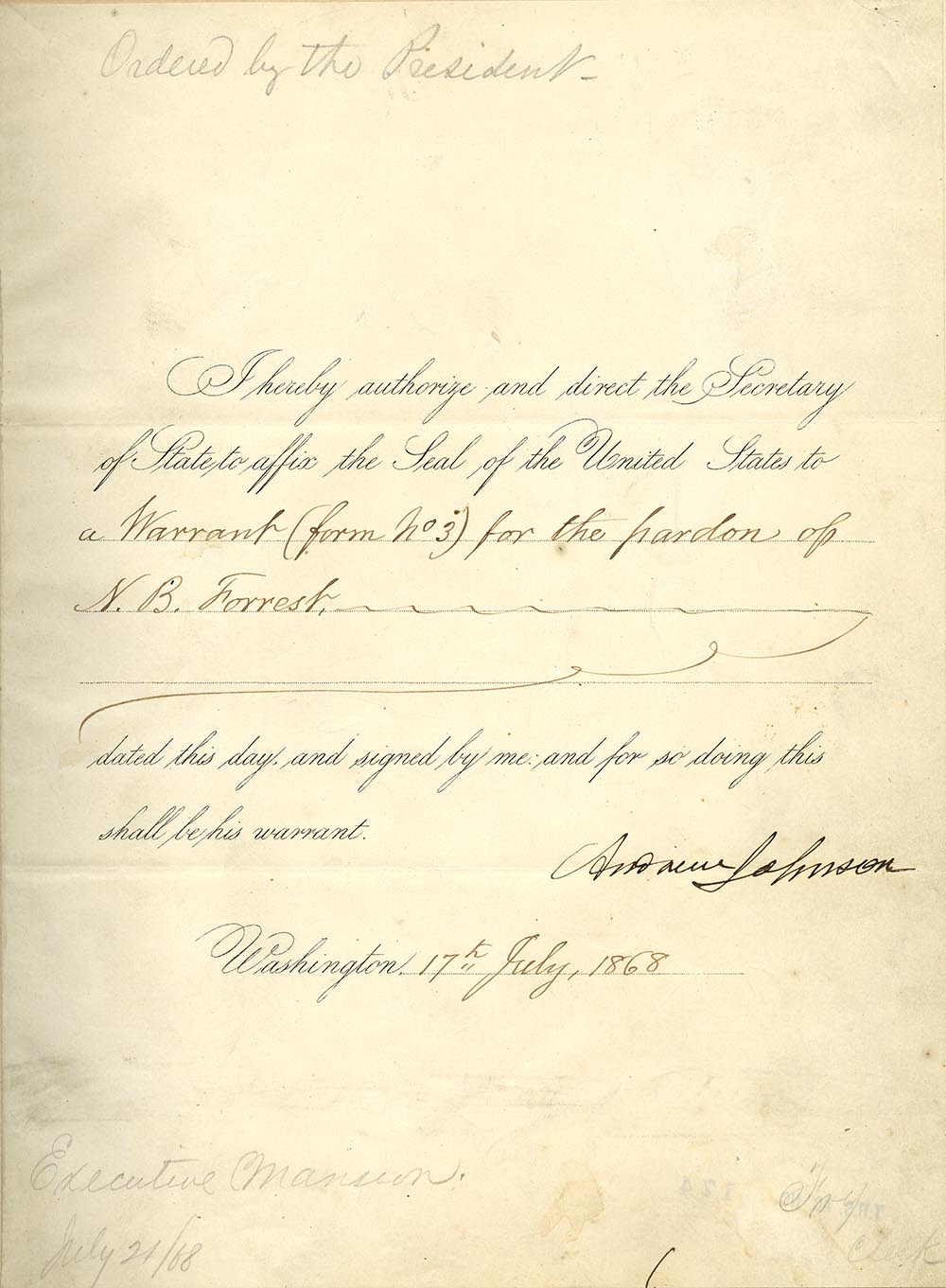
Many Tennesseans opposed the Fourteenth Subpoena because it denied former Confederates the correct to participate in authorities. Despite these objections, Brownlow was able to force the General Assembly to ratify the subpoena on July xviii, 1866. This activeness paved the mode for Tennessee's early readmission to the Union. Tennessee became the third land to ratify the Fourteenth Amendment, before any other Southern state and earlier than most Northern states. Though many citizens despised Brownlow's government, it ensured that Tennessee rejoined the nation sooner than any other seceded country. More than chiefly, it meant that Tennessee would be the simply Southern state to escape the harsh military rule inflicted by the Radical Congress.
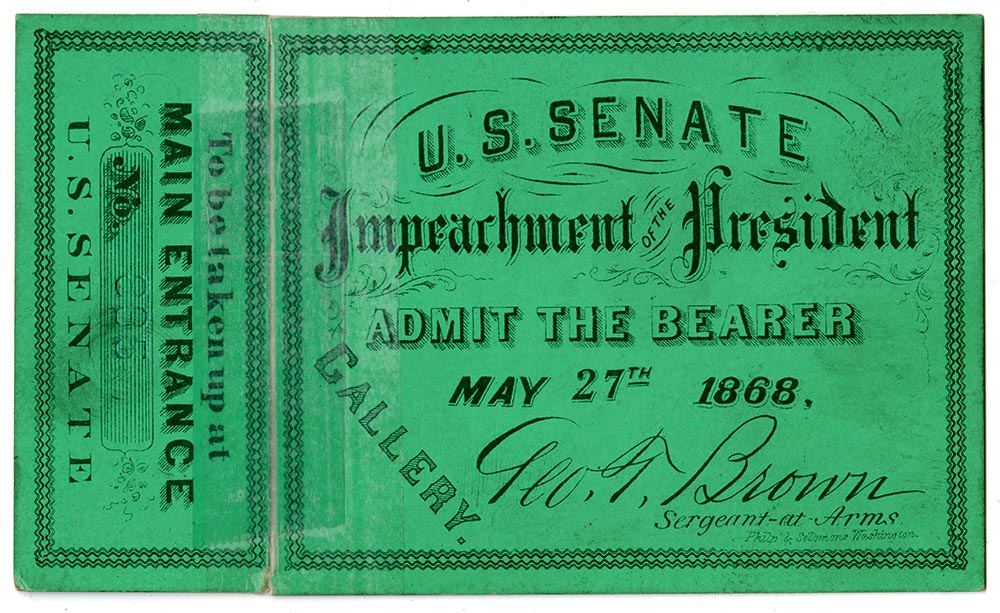
Governor Brownlow's administration cooperated with the Radical Republicans in Congress, but not with the majority of the people in its own state. Brownlow faced considerable opposition from other Unionists who resented his undemocratic methods. Therefore, he decided to give the vote to freedmen in order to strengthen his support at the polls. Accordingly, in February 1867, the Tennessee General Assembly declared its support for giving voting rights to African American males. This came ii years before Congress passed the Fifteenth Amendment. With the help of African American voters, Brownlow and his slate of candidates swept to victory in the 1867 elections. A slate of candidates is a group of political candidates who share a set of political views.
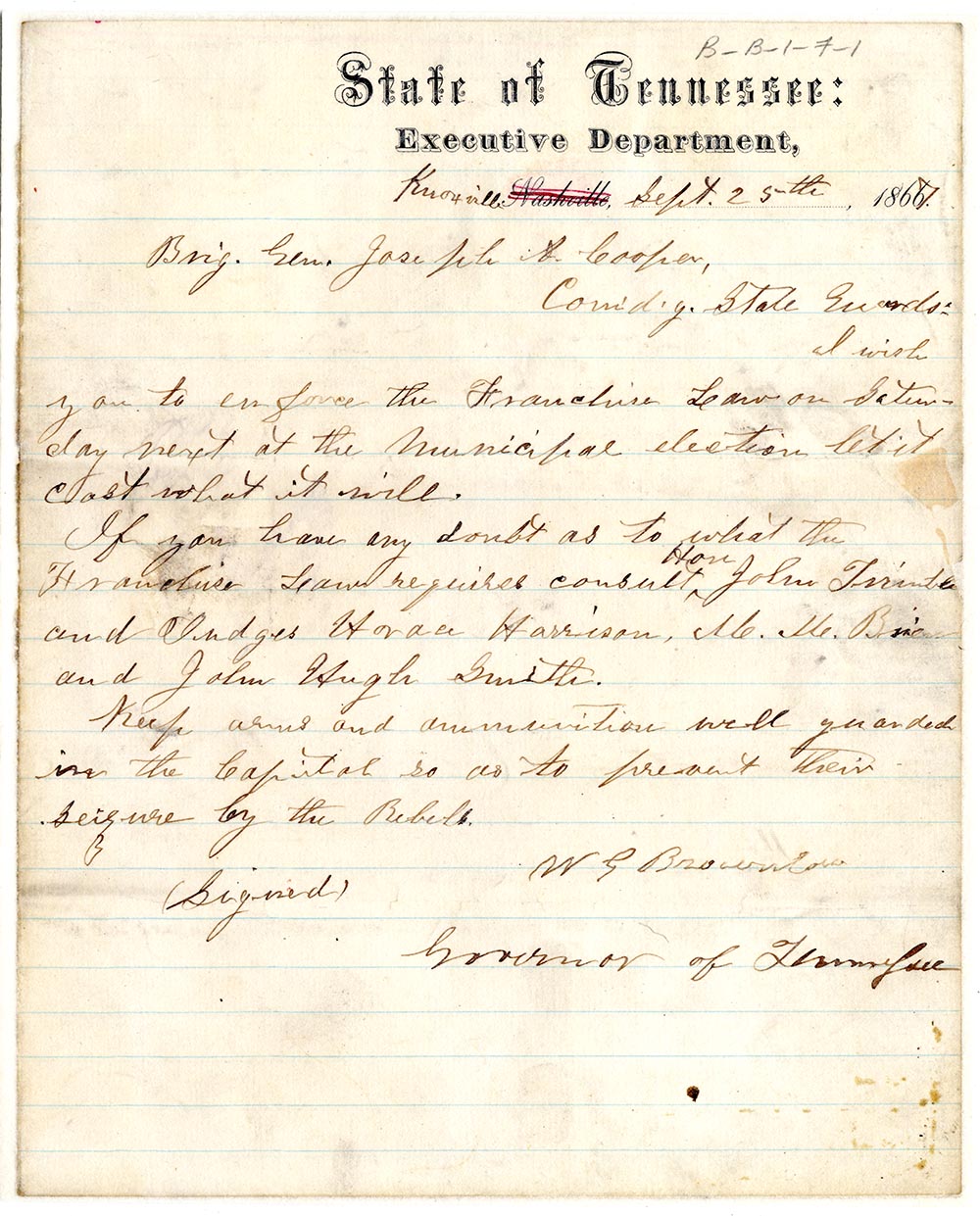
Brownlow's unpopular and undemocratic authorities caused its own downfall. The Ku Klux Klan emerged in the summer of 1867, one of several shadowy vigilante groups opposed to Brownlow and freedmen'south rights. Vigilantes are people who use violence to enforce the rules or laws of their club. In this case, the Klansmen wanted to enforce the pre-Civil War rules that denied rights to African Americans. These groups were made up largely of ex-Confederates. Their goal was to intimidate the African American voters past attacking their homes and families. Many onetime Confederates joined the Ku Klux Klan because it was the only political organization open to them while Brownlow was governor. In 1869, Brownlow was selected to fill a seat in the United States Senate. With Brownlow gone, the Klansmen saw a path dorsum to political power. The grouping officially disbanded in 1869 merely would be revived in the early on twentieth century.
Brownlow's departure for Washington gave conservatives a take chances to bring ex-Confederates back into country authorities. Brownlow's successor, DeWitt Senter, was also thought to be a Radical Republican. All the same, once Senter took office, he allowed ex-Confederates to register to vote. Equally a result of their support, Senter hands won the governorship in the ballot of 1869. 7 times as many Tennesseans voted in 1869 than in 1867.
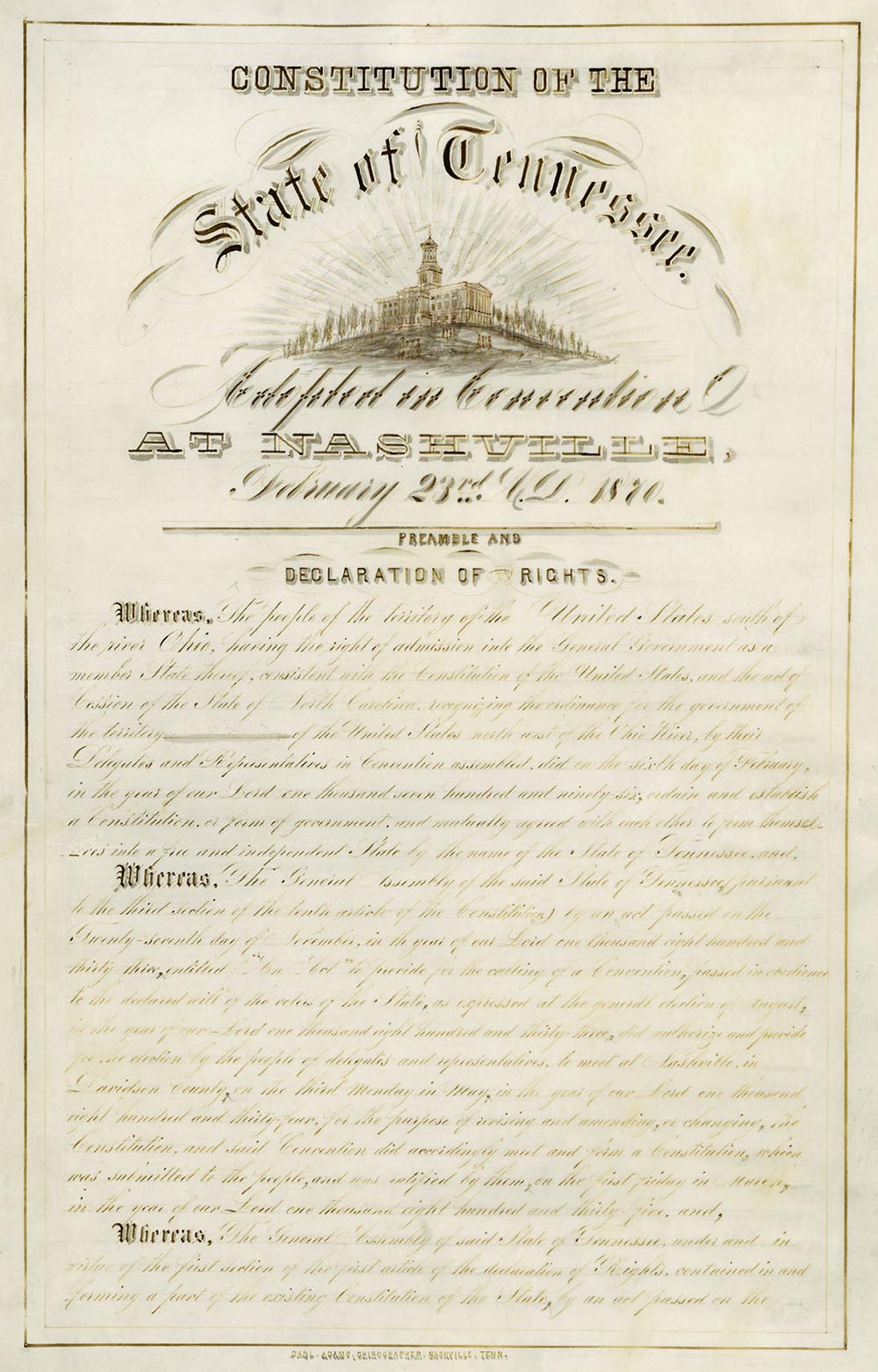
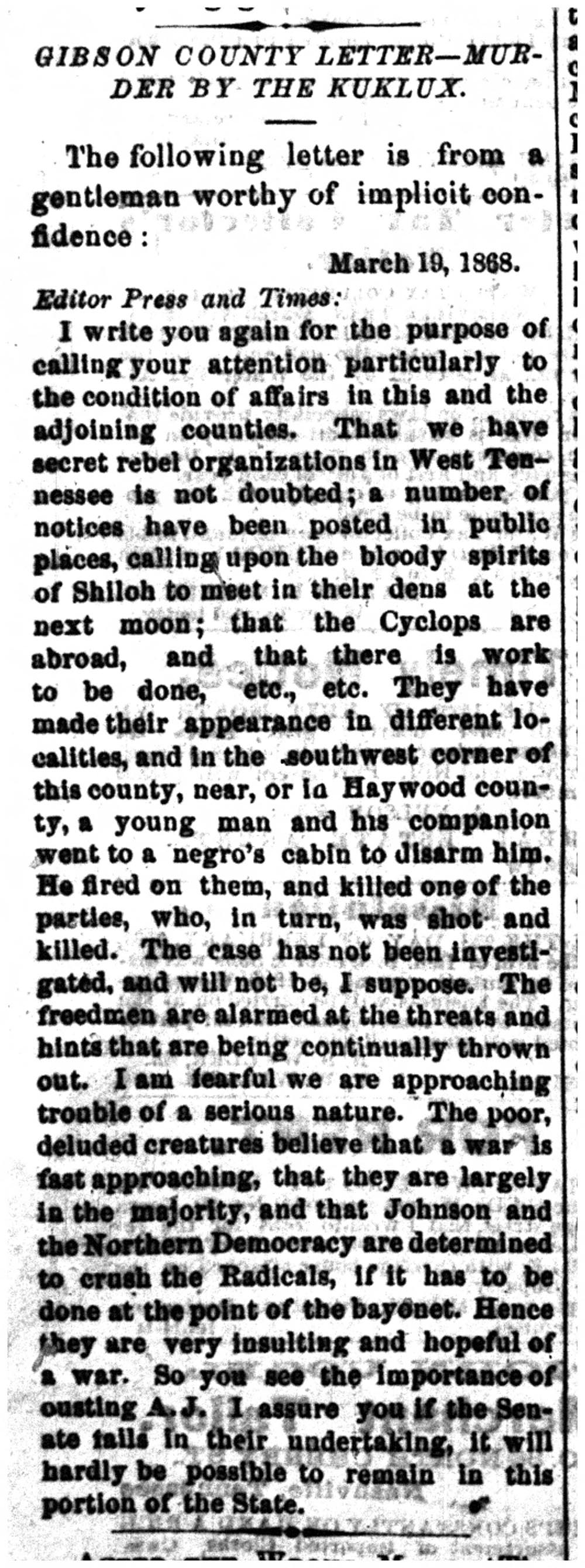
In 1870, delegates from beyond the state met to rewrite the country Constitution. While the delegates were mostly conservatives, they were careful to write a constitution that would allow Tennessee to avoid Federal military occupation. Delegates ratified the abolition of slavery and voting rights for freedmen only limited voter participation past enacting a poll tax. A poll tax is a tax that must be paid before a person can vote. Political reconstruction effectively ended in Tennessee with the rewriting of the Constitution, but the struggle over the civil and economic rights of black freedmen had just begun.
After the war, African Americans faced more difficulties than about other Tennesseans. Many freedmen left the plantations and rural communities for urban areas such as Memphis, Nashville, Chattanooga, and Knoxville looking for piece of work and a take a chance to improve their lives. Freedmen also fled the countryside to escape the violence of groups similar the Klan. These newcomers settled near military encampments where blackness troops were stationed. Over fourth dimension, these areas developed into major African American communities such every bit North Nashville and South Memphis. In time, an African American professional and business organization class developed in the cities.
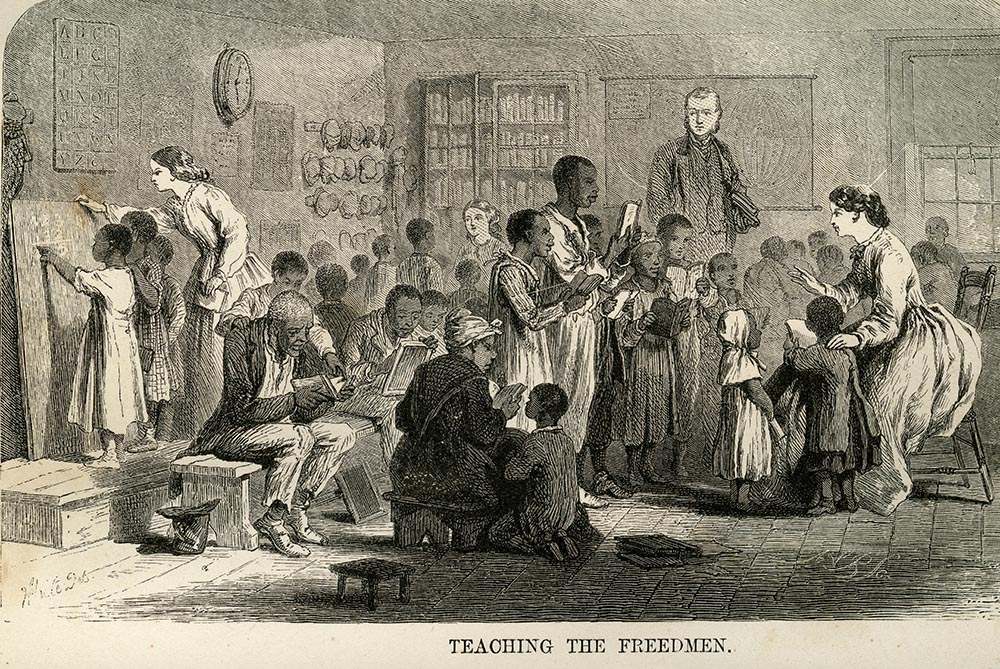
One establishment created specifically to help former slaves was the Freedmen's Bureau. With help from Northern missionaries, the Freedmen'southward Bureau set hundreds of public schools for African Americans. Freedmen responded enthusiastically to the new schools, and a number of colleges—Fisk, Tennessee Primal, LeMoyne, Roger Williams, Lane, and Knoxville—were before long founded to meet the need for college education. However, the Freedmen's Bureau was not mostly successful in helping African Americans acquire their ain land. Well-nigh African Americans in the countryside were laborers or tenant farmers. After the army left in 1866, the Freedmen'southward Bureau declined in influence. In the time to come, Tennessee freedmen had to rely on themselves and their own leaders to advance their goals.

African Americans were politically active and exercised their newfound legal rights fifty-fifty afterwards the Radical Republicans lost power in 1869. They brought suits in the county courts, filed wills, and ran for local elected offices, particularly in the cities where they commanded strong voting blocs. A voting bloc is a grouping of voters who share mutual concerns and therefore vote for the same candidates. Beginning with Sampson Keeble of Nashville in 1872, thirteen black legislators were elected to the Tennessee House of Representatives. Much of their legislative work consisted of trying to protect the rights gained during Reconstruction. S. A. McElwee, Styles Hutchins, and Monroe Gooden, elected in 1887, would exist the last black lawmakers to serve in Tennessee until the 1960s.
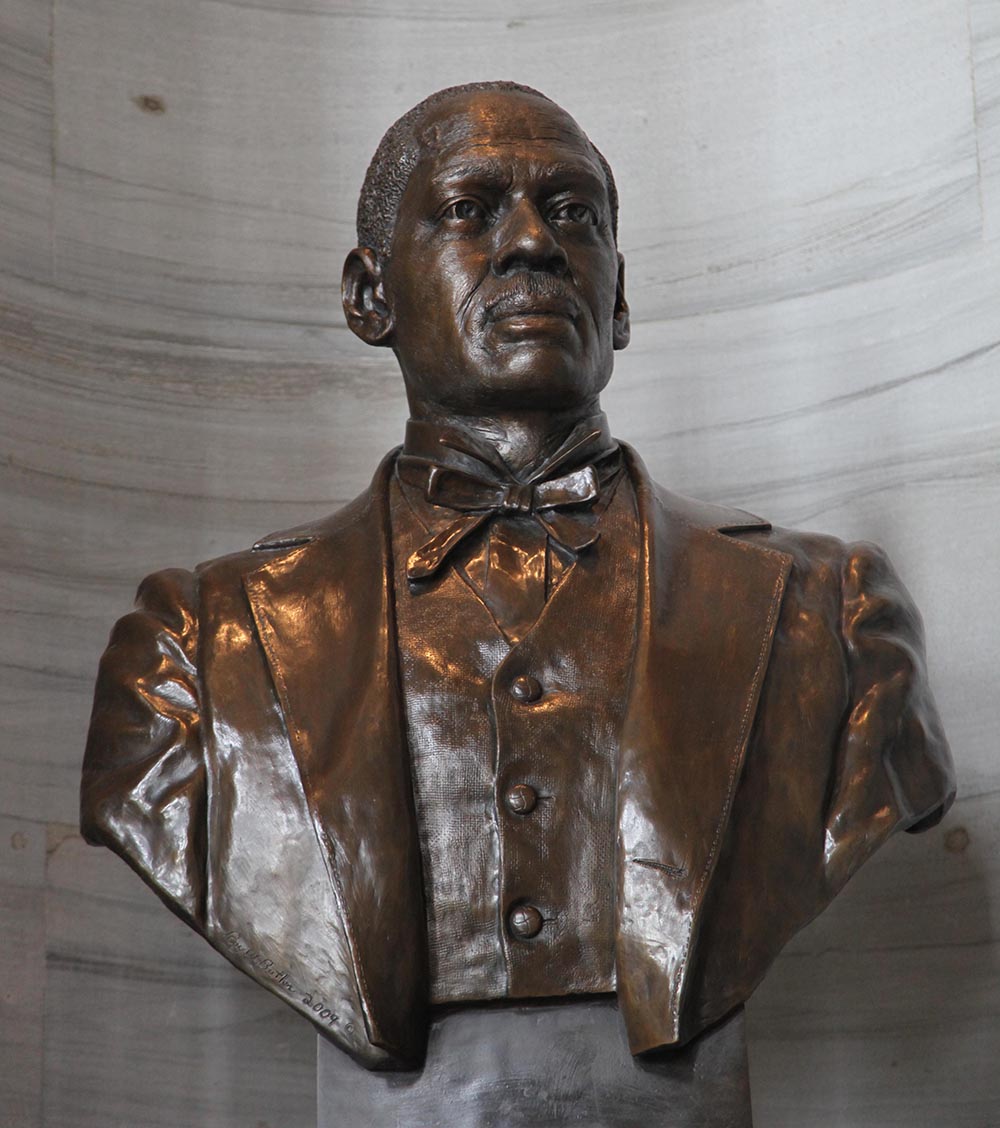
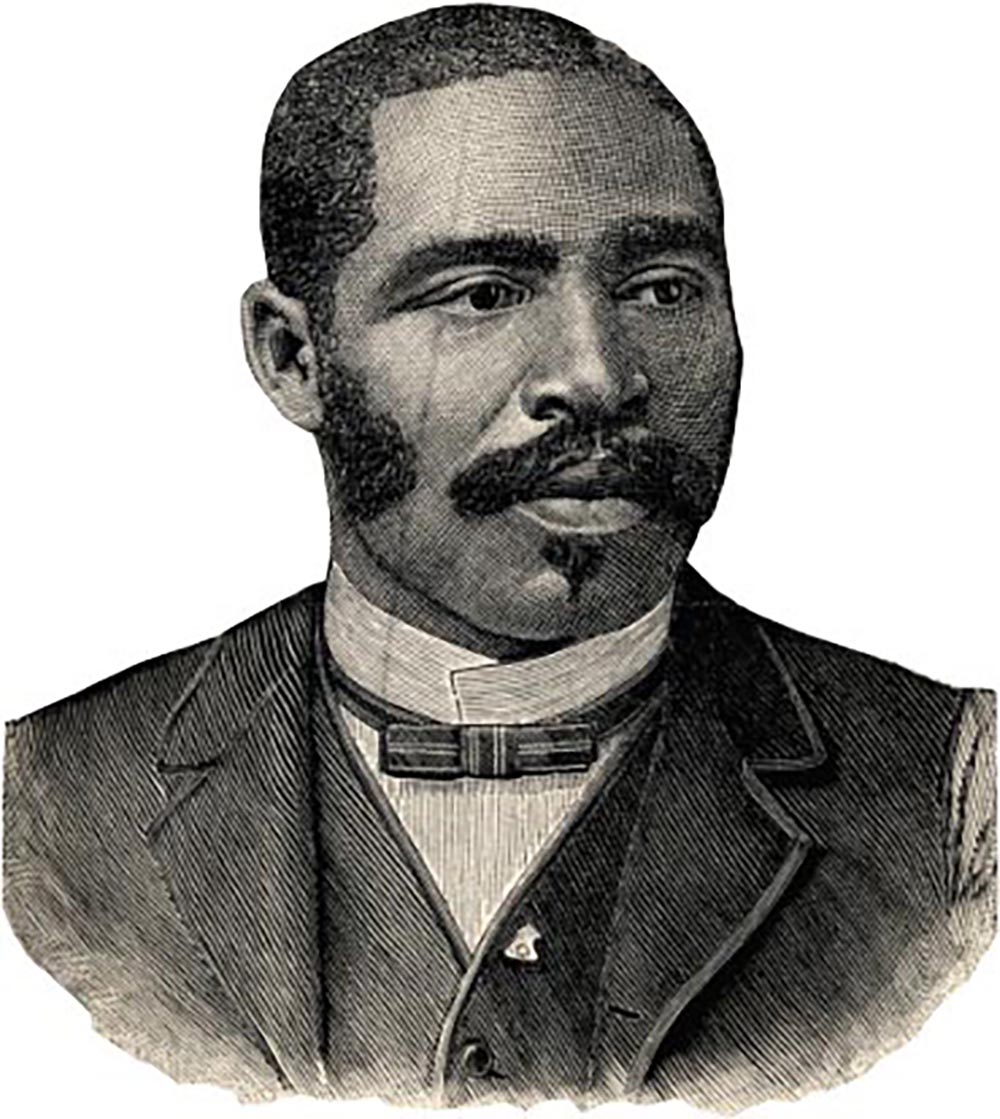
One time the Democrats regained political power, they began to contrary the movement towards racial equality. The Klan had enforced white supremacy with lynchings, beatings, and arson. Lynchings are illegal executions unremarkably carried out before the accused has a trial. Beginning in the 1870s, the Legislature began to pass laws designed to make African Americans second-class citizens. These laws were called "Jim Crow" laws after a grapheme in a popular traveling show. Poll taxes and literacy tests targeted African American voters and greatly reduced the number of African Americans participating in the political system. Past the 1880s, the Legislature demanded split facilities for whites and blacks in public accommodations, like boarding houses, and on railroads.
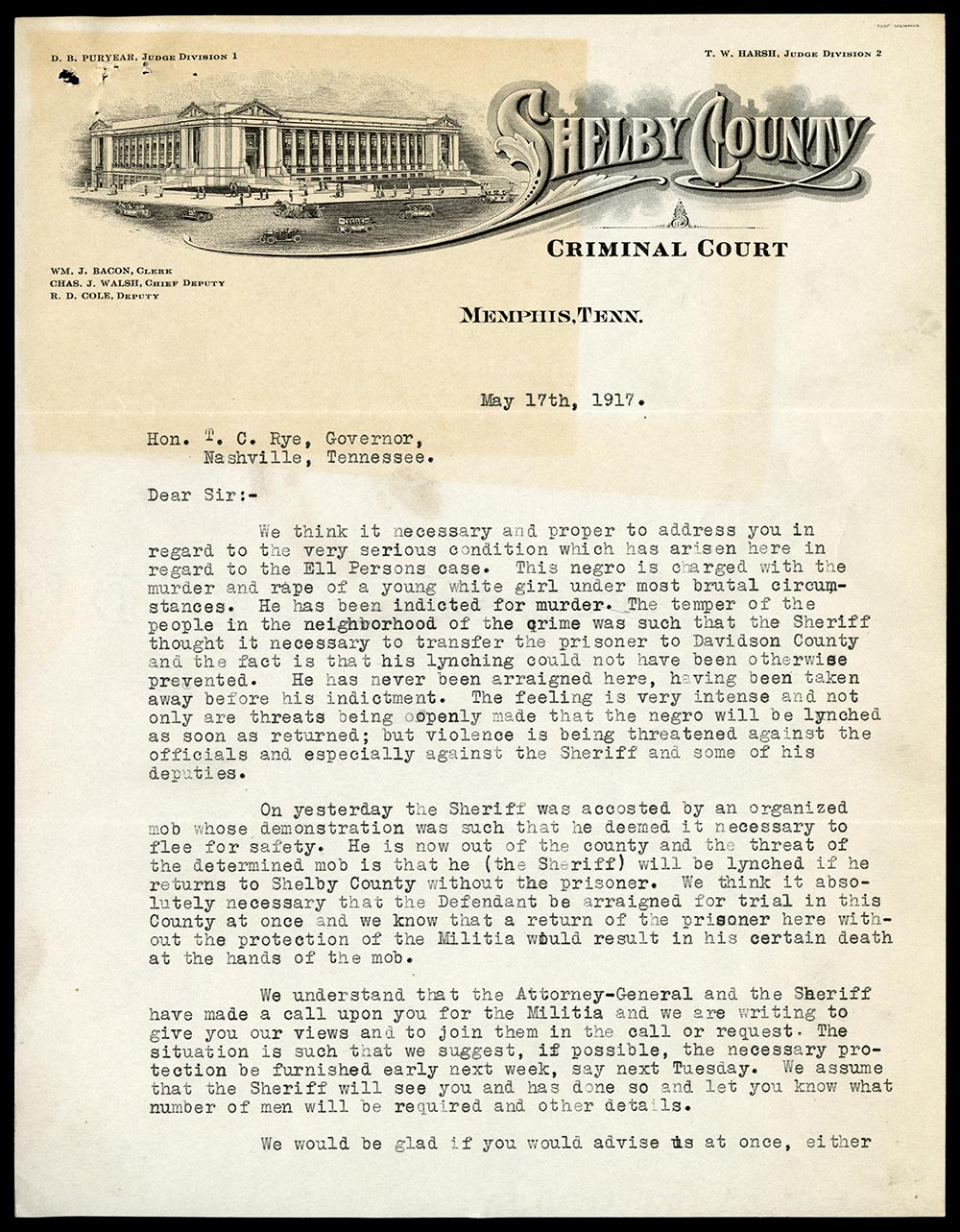
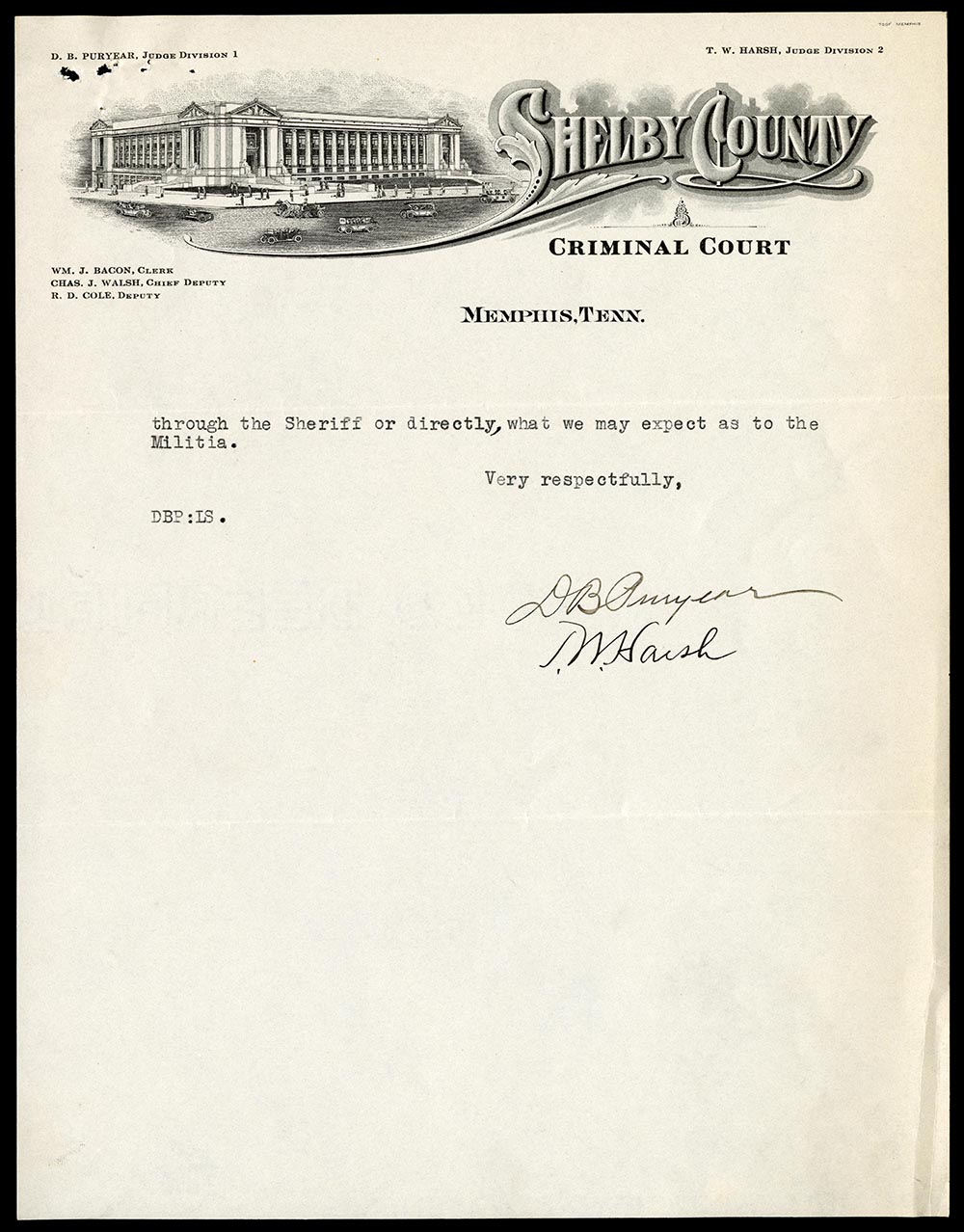
Ane young woman, Ida B. Wells, challenged the "carve up but equal" police on the railroads in an 1883 courtroom instance. Wells had purchased a ticket for the ladies' machine and refused to requite up her seat when the conductor demanded she motility to the "Jim Crow" car. Wells subsequently sued the railroad visitor and won in the lower courts, but the Tennessee State Supreme Court ruled against her. Wells moved to Chicago and spent the remainder of her life fighting for equality for African Americans and women. She drew the nation's attention to the use of lynching every bit a means of terrorism against African Americans in her book Southern Horrors: Lynch Police force in All Its Phases. Quondam slave and Chattanooga newspaperman Randolph Miller besides fought discrimination in Tennessee. Miller helped to organize a boycott of Chattanooga'due south streetcars after they were segregated.
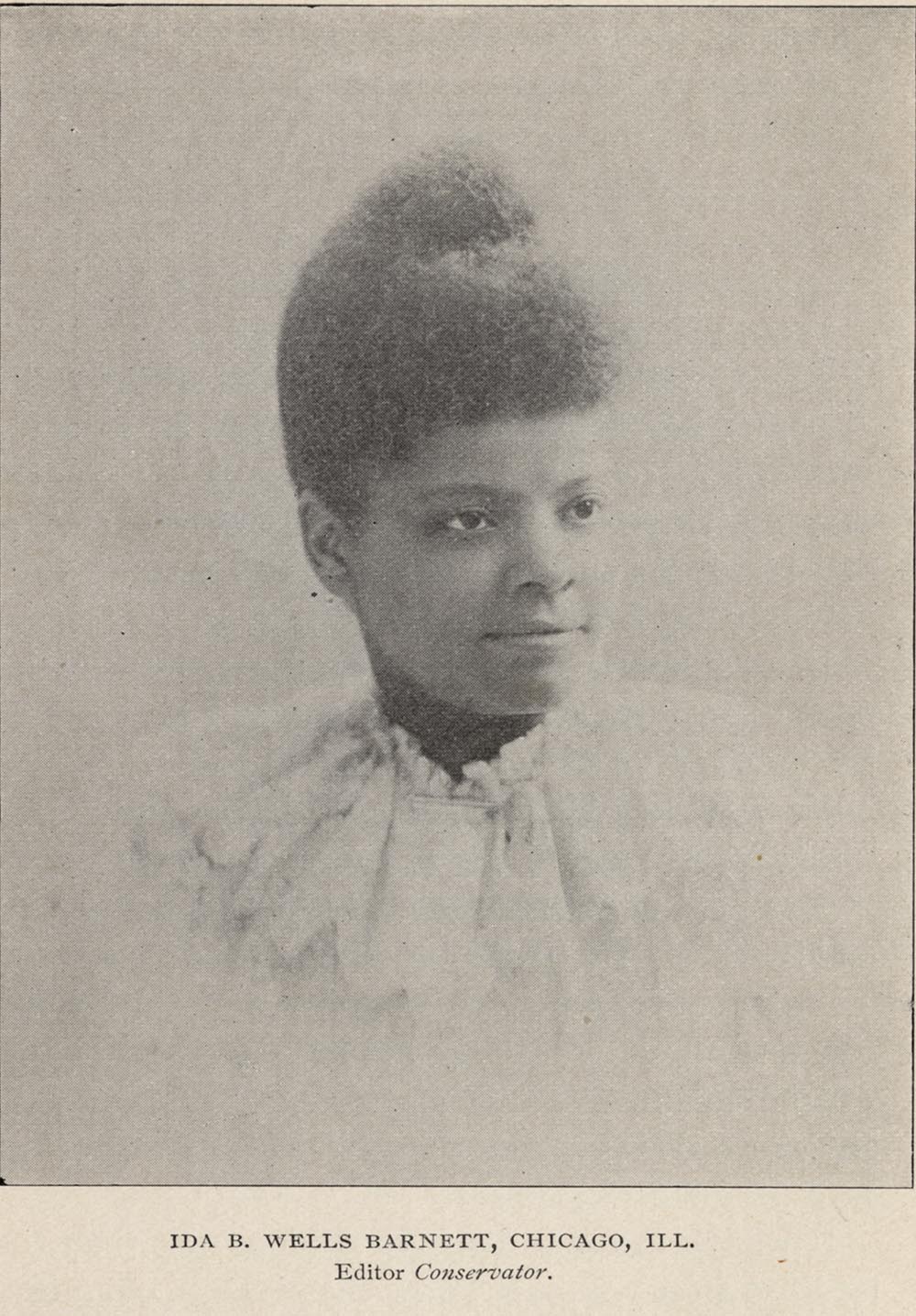
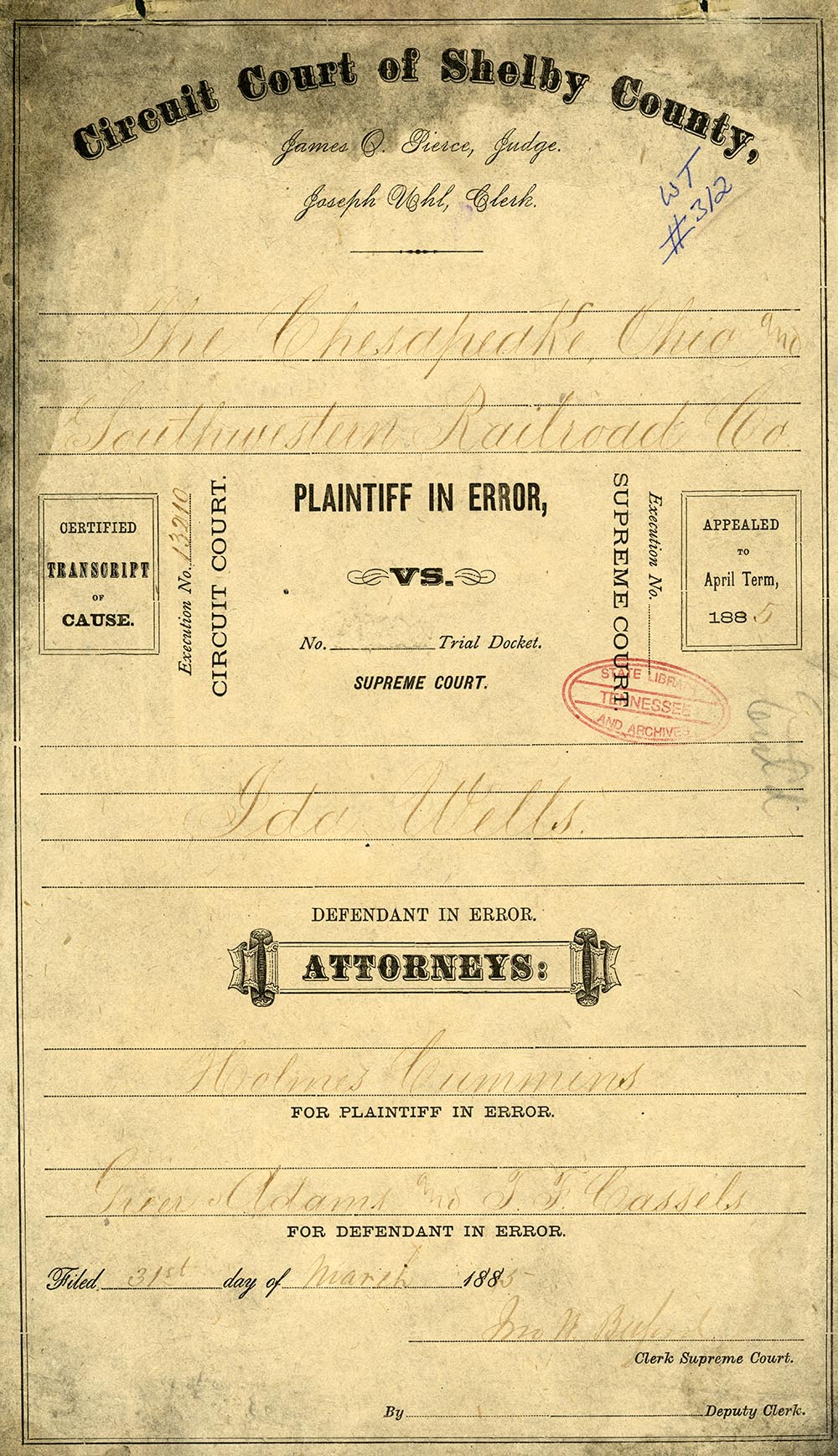
Nashvillian Benjamin Singleton as well worked to improve the lives of African Americans. Singleton urged his fellow freedmen to get out the South altogether to homestead in Kansas. The Homestead Act of 1862 gave settlers the opportunity to claim 160 acres of public land in the West. Homesteaders had to pay a small fee and alive on the state continuously for 5 years. The freedmen who moved to Kansas were known as Exodusters . Another grouping of African Americans who played an important office in the settlement of the West were the Buffalo Soldiers. Many Buffalo Soldiers were former slaves who joined the Union army after emancipation. Buffalo Soldiers like Tennessean George Jordan played an of import role in the Indian Wars of the tardily 1800s. Jordan was awarded the Medal of Honor in 1890 for his leadership in an 1880 battle confronting Apaches. Despite receiving this honour, Jordan died in 1904 after being denied handling at Fort Robinson's infirmary because he was African American.
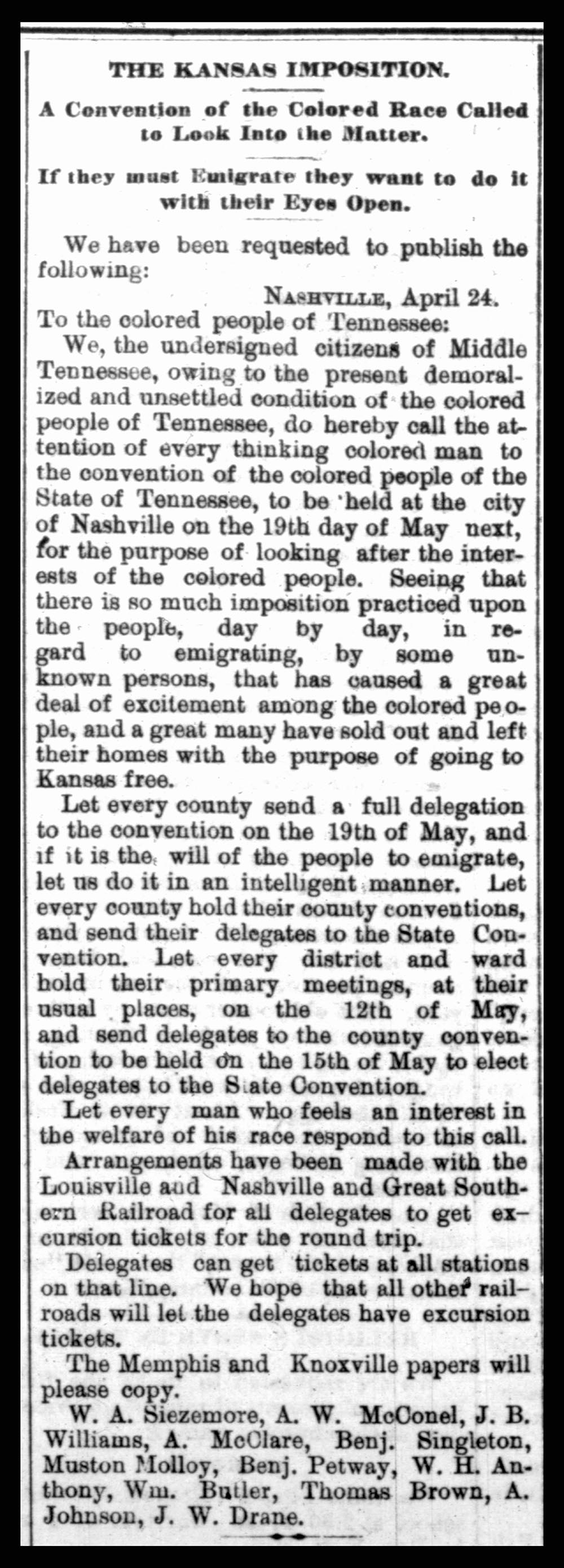
Ane response to the labor shortage and holding losses acquired past the war was the entrada to rebuild a "New Due south" based on industry, skilled labor, and exterior capital letter. Promoters and state officials worked hard to attract skilled foreign immigrants to the country. The state never succeeded in attracting a large number of immigrants. However, a few isolated German language and Swiss colonies, such as Gruetli in Grundy County, were formed. As tardily as 1880, the foreign-born part of Tennessee'due south population was still only one percent, compared with a national average of xv percent.
"New S" advocates backed the educational reform act of 1873. The act tried to establish regular school terms and reduce the country's loftier illiteracy rate. A statewide administrative construction and general schoolhouse fund were created, but the Legislature failed to give the schools plenty money to operate full time. Improve progress was made during the 1870s in the field of college education: Vanderbilt University was chartered; East Tennessee College was converted to the University of Tennessee; and Meharry Medical College, the showtime African American medical school in the nation, was founded. Finally, the University of Nashville became the Peabody State Normal School, one of the earliest Southern colleges devoted exclusively to training teachers.
The "New South" promoters also met with some success in alluring outside capital to Tennessee. Northern businessmen, many of whom had served in Tennessee during the war, relocated here to have advantage of cheap labor and arable natural resources. Some Tennesseans viewed these businessmen every bit opportunists and referred to them as "carpetbaggers" because many of the men arrived with their belongings in carpetbags. Mayhap the most prominent of these "carpetbaggers" was Full general John Wilder, who congenital a major ironworks at Rockwood in Roane County. Chattanooga'due south atomic number 26 and steel industry benefited greatly from Northern money. The city grew rapidly into one of the South's leading industrial cities. In 1899, 3 lawyers from Chattanooga bought the rights to canteen Coca-Cola. The men then sold the right to bottle Coca-Cola to businessmen throughout the country. By 1890, the value of manufactured appurtenances produced in Tennessee reached $72 1000000. Before the war, Tennessee merely produced about $700,000 worth of manufactured goods per year.

State funding for railroad construction left Tennessee $43 1000000 in debt. Tennessee'due south lawmakers debated how to pay the debt for many years. One method that the country used to raise revenue, or income, was the infamous convict lease organisation. In this organization, prisoners were leased to private businesses equally laborers. The business was responsible for providing food and shelter for the prisoners and preventing them from escaping. Legislators liked this system because it earned money for the state and prevented the land from having to build a new prison. In 1871, Tennessee began leasing prisoners for work in the coal mines of Due east Tennessee. In the Cumberland Plateau region, the largest mine operator was the Tennessee Coal, Fe and Railroad Company (TCI). In 1884, TCI signed an exclusive lease with the state for the apply of convicts in its mines. In addition to keeping labor costs depression, convict lease labor was i means of overcoming strikes. Co-ordinate to A. S. Colyar, TCI's president, "The visitor institute this an effective club to hold over the heads of gratuitous laborers."

Trouble erupted in 1891 at mines in Anderson and Grundy Counties, when TCI used convicts equally strikebreakers confronting striking coal miners. Miners began releasing convicts and burning downward the stockades where they were housed. Violence in the coal fields peaked during the summer of 1892, when state militia was sent to the Coal Creek area past Governor John Buchanan. The militia fought a series of battles with armed miners, known as the Coal Creek War. More than 500 miners were arrested, and twenty-vii miners were killed. The Coal Creek War convinced the General Assembly to terminate convict leasing in 1895 when the TCI contract expired, making Tennessee 1 of the commencement Southern states to get rid of the system. The state also built 2 new prisons at Nashville and Brushy Mountain in Morgan County. Prisoners at Brushy Mountain mined coal in land-owned mines.
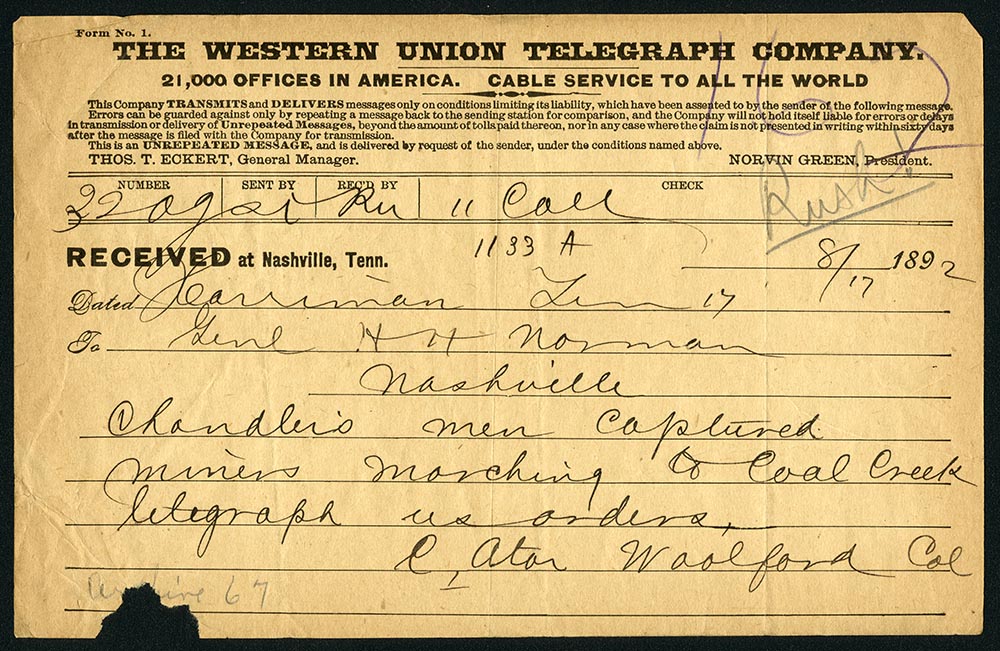
Though about Tennesseans were still farmers, it became harder and harder for them to earn a living. Earlier the war, Tennessee's farmers had grown a broad multifariousness of crops. After the war, farmers concentrated on growing cash crops such as cotton, tobacco, and peanuts. Falling subcontract prices, high railroad rates, and the Depression of 1873 all worked confronting independent farmers. Equally a result, many farmers became sharecroppers. Sharecroppers rented country to farm and paid the landowner by giving him a portion of the crop they produced. Sharecroppers were nearly always in debt at loftier interest rates for land, tools, and supplies, and they were typically the poorest class of farmers.
In the 1880s, Tennessee farmers began to organize in a serial of political movements. In 1886, votes from farmers helped Robert Taylor win the race for governor. Taylor defeated his blood brother in the famous "War of the Roses" campaign. Three years subsequently, a farmers' organization called the Agricultural Wheel signed up 78,000 members in Tennessee, more than in whatever other state. The Bicycle later on merged with an organization called the Farmers' Brotherhood to create a strong grassroots motility. A grassroots motility is a political or social movement that begins with people on the local level.
In 1890, Alliancemen put their candidate, John Buchanan, in the Governor'due south Office. Buchanan'south farmer-dominated Legislature passed the first pension human action for Confederate veterans. The alimony human action immune Confederate veterans or their families to receive a pocket-sized monthly payment from the land. Withal, Buchanan'due south popularity suffered as a event of his handling of the Coal Creek uprising. The Tennessee Alliance joined with the newly formed Populist Party to organize a serious challenge to the traditional 2-political party system. Democrats, however, spread rumors that the Populists and Republicans had made a deal. The Democrats also criticized the alliances for albeit African American members, which damaged the Populists' reputation among white farmers. By 1896, the Populists and Farmers' Alliance had virtually disappeared in Tennessee, another victim of the dismal racial politics of the period.
The land continued its military tradition. When the Spanish-American War began in 1898, iv regiments of Tennesseans volunteered for the United States Army. The 2d, Third, and Quaternary Regiments were sent to Cuba, where they suffered from heat and disease merely saw picayune action. The Beginning Tennessee Infantry was dispatched to San Francisco and so past troopship to Manila in the Philippines. There, these troops aided in the suppression of the Filipino nationalist move, returning to Nashville tardily in 1899.
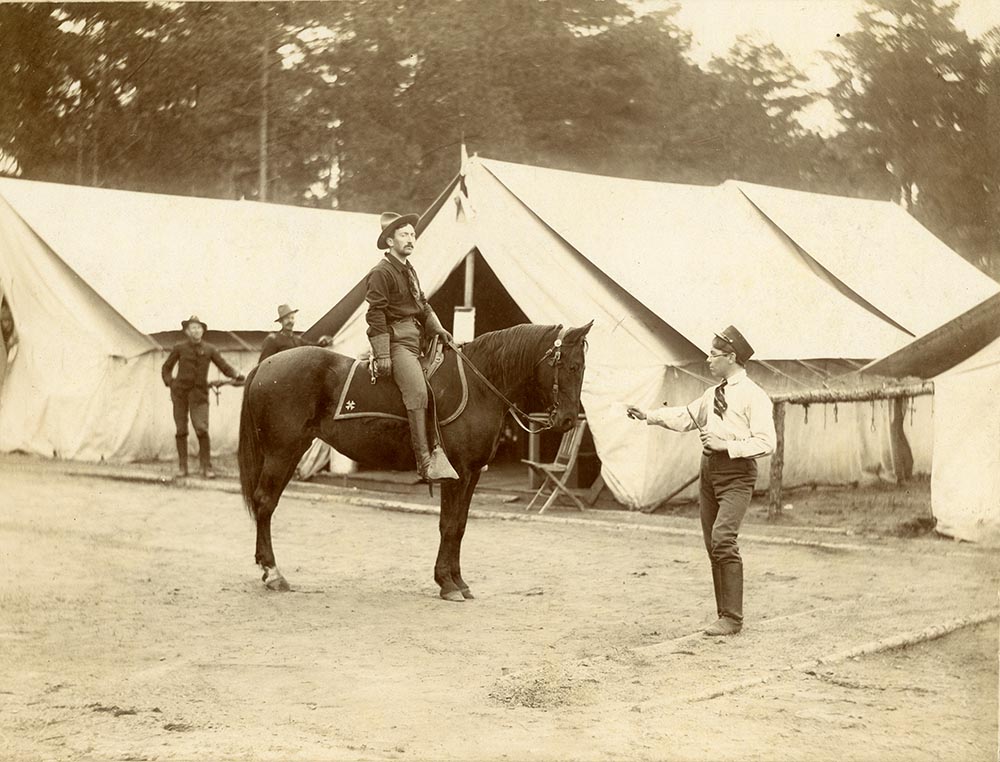
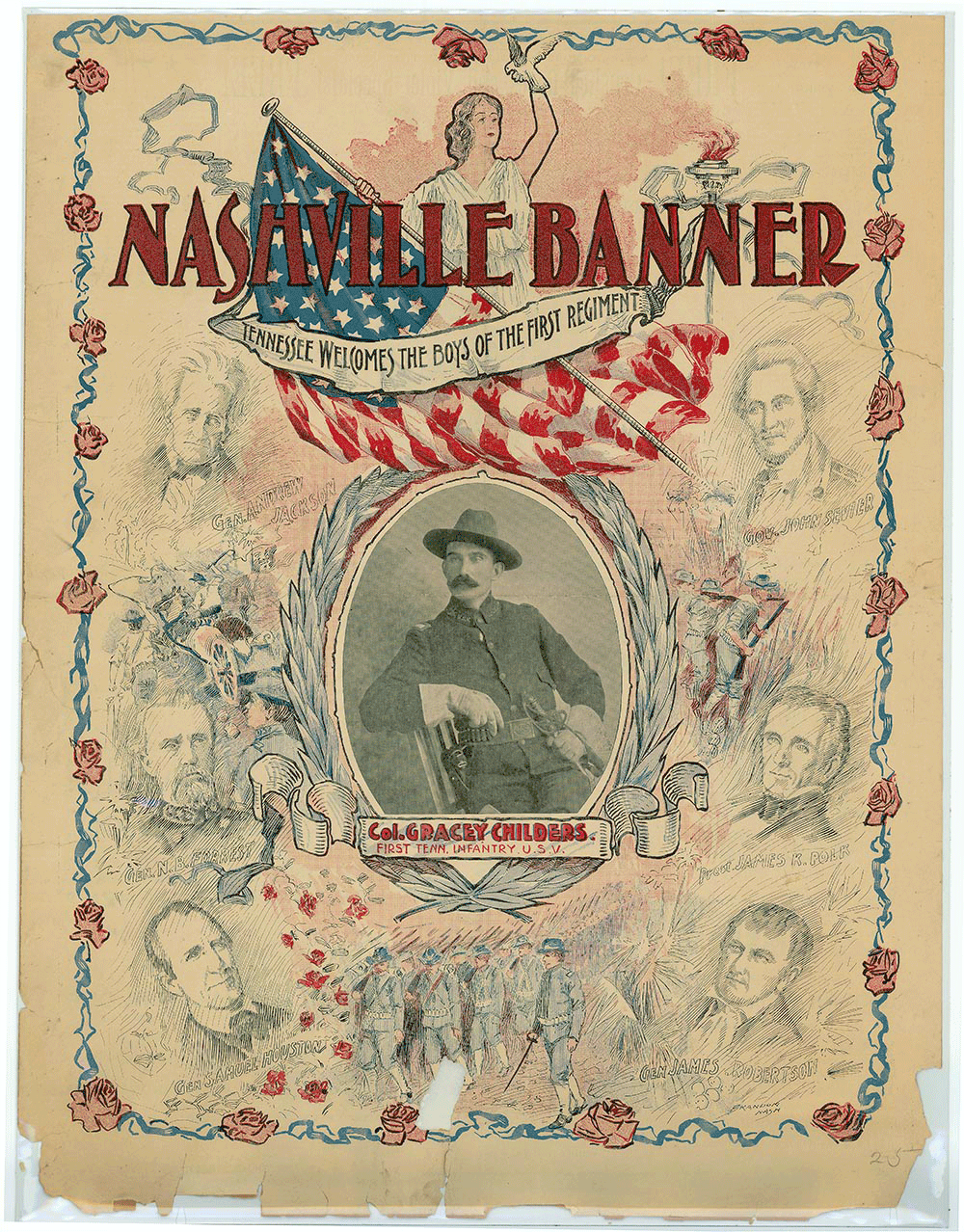
Belatedly nineteenth-century Tennessee has been called a "social and economic laboratory" because of the diverseness of experimental communities established here. The land became home to a number of utopian colonies , land company settlements, and recreation spas. Leaders of utopian communities wanted to create perfect communities based on their individual philosophies. These communities were formed in part due to the availability of cheap state in remote natural surround.
In 1880, some absentee landowners sold English author Thomas Hughes a large tract of land in Morgan Canton, on which he established the Rugby colony. For the next twenty years, English and American adventurers settled here to take part in the intellectual and vocational opportunities Rugby offered. Some other experimental colony was Ruskin, founded in 1894 by the famous socialist publicist Julius Wayland. Located on several hundred acres in rural Dickson County, Ruskin was a cooperative community in which wealth was held in common, and members were paid for their work in paper scrip based on units of labor. Both Rugby and Ruskin had declined by 1900.
Tennessee had begun to recover from the destruction of the Ceremonious State of war. Sixteen per centum of the state'due south 2 million people lived in cities in 1900, with the largest urban center, Memphis, having a population of 102,300. Memphis had survived 3 split outbreaks of deadly yellow fever during the 1870s. Xanthous fever is spread past the Aedes aegypti mosquito. Memphis was especially vulnerable to yellow fever because its poor sanitation and drainage systems gave the mosquitoes many places to brood. During the 1878 outbreak, well-nigh of Memphis's wealthy citizens fled, and the city nearly ceased to function. Many brave doctors, nurses, nuns, and priests remained in the metropolis to care for the sick, only to contract the affliction themselves. The priests and nuns of St. Mary's Cathedral who died afterward contracting yellow fever from their patients are known as the Martyrs of Memphis. The epidemics killed 7,750 people. A new state lath of health helped the river metropolis to overhaul its health and sanitation system which reduced the threat of future outbreaks. People and businesses flocked to Memphis in the post-obit years.

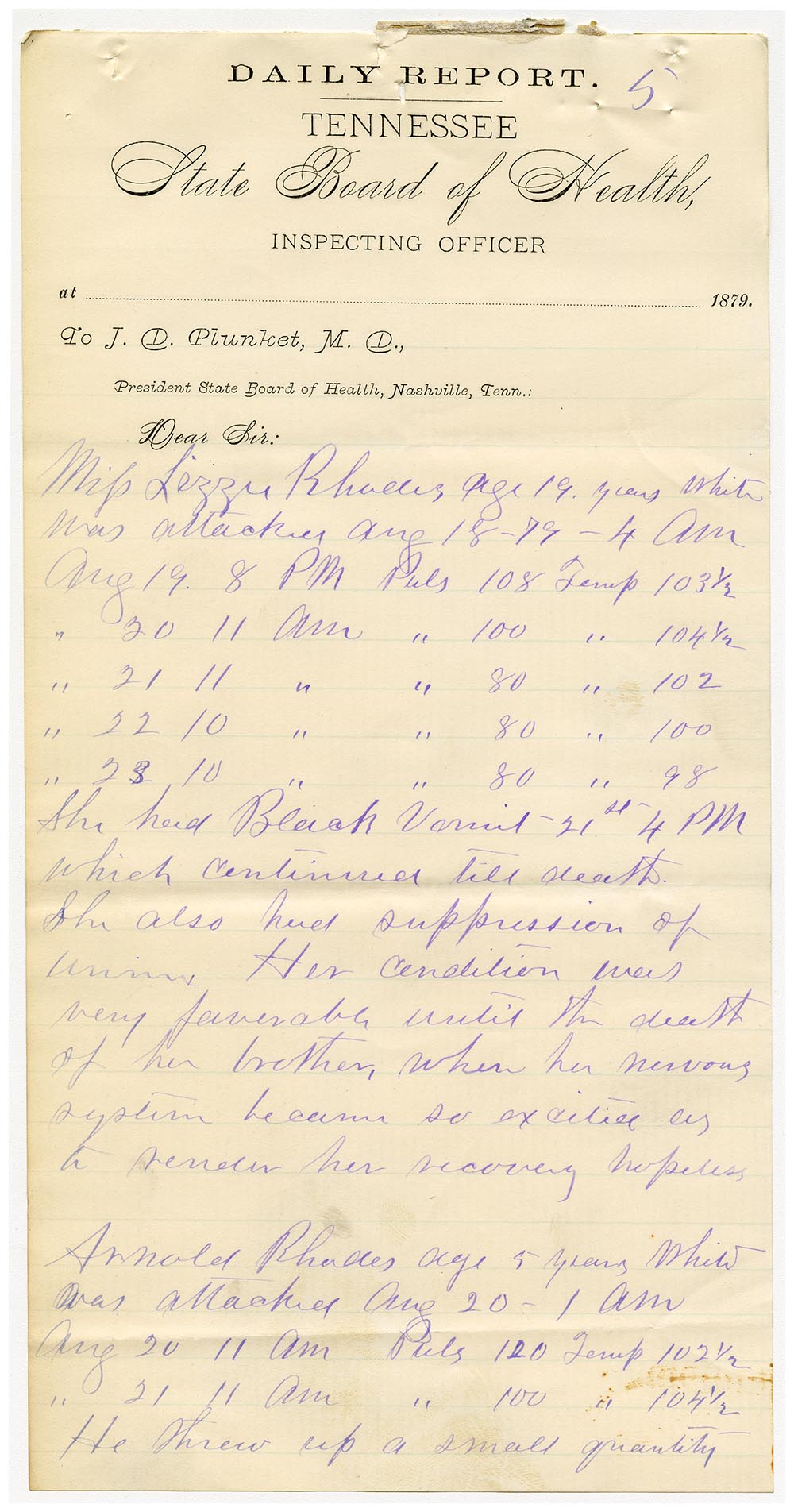
Nashville was also proud of its evolution afterwards the war. In 1897, Nashville hosted a huge celebration in honour of the land's 100th birthday. The Tennessee Centennial Exposition showcased industrial engineering science and recreations of the globe'southward wonders including the Parthenon. The centennial was the ultimate expression of the Gilded Historic period in the Upper South. During its six-calendar month run at Centennial Park, the Exposition drew nearly two million visitors to see its dazzling monuments to the Southward'southward recovery. Governor Robert Taylor observed, "Some of them who saw our ruined country thirty years ago volition certainly appreciate the fact that we take wrought miracles."

Source: https://tnsoshistory.com/chapter7
0 Response to "When Did Former Confederates Get the Right to Vote Again in Tennessee"
Post a Comment